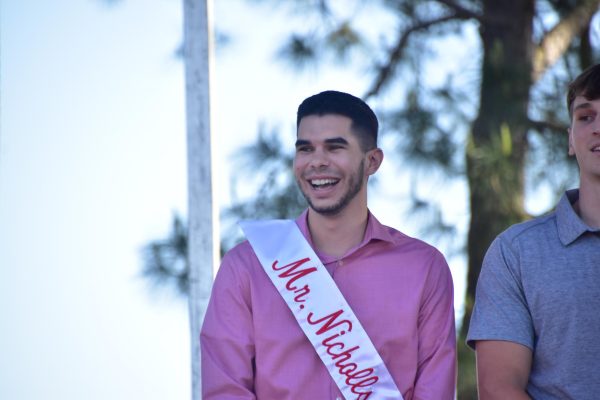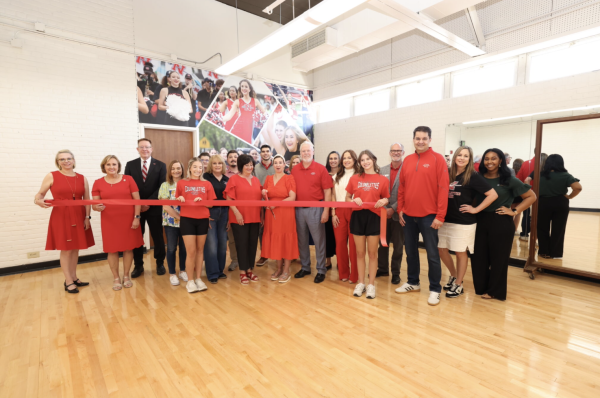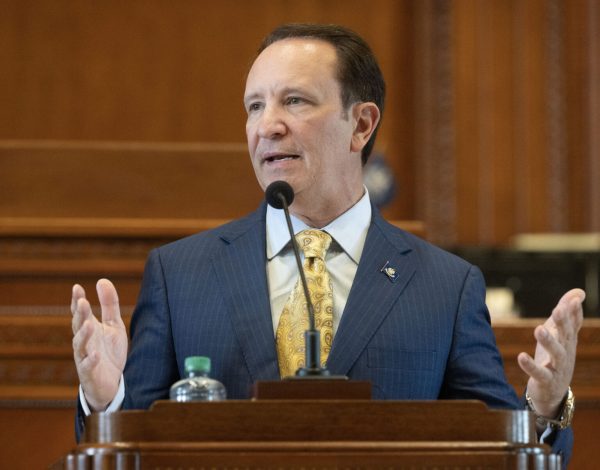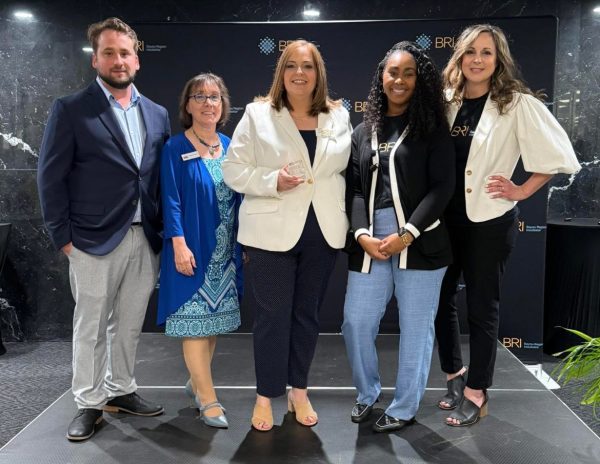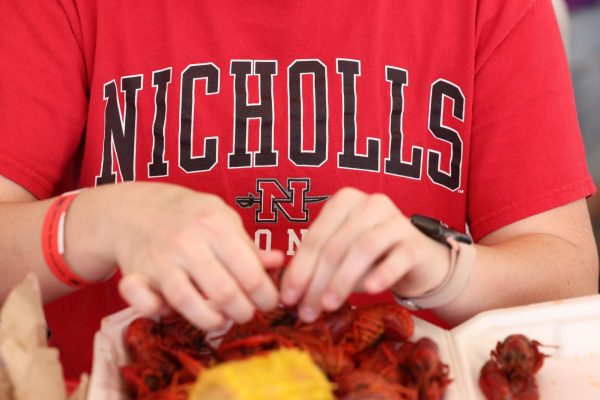How will Nicholls be able to keep record of those vaccinated?
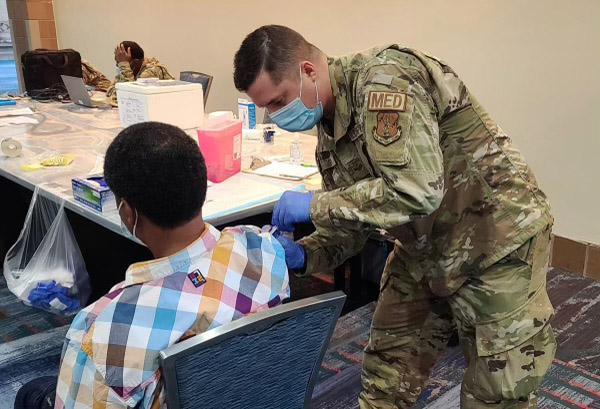
Nicholls State University plans to make the COVID-19 vaccination mandatory, but how will the university be able to keep record of those vaccinated since many have received immunization off of campus?
The University Health Services, through the LINKS (Louisiana Immunization Network) interphase, has access to every student’s immunization status for all potential and required vaccines.
Director of Student Support and Wellness Services Adrienne Naquin-Bolton said that the University has a system of its own that interacts with LINKS to get all immunization results.
“Our EMR (Electronic Medical Records) System interfaces with LINKS, so when we run a report, it matches the names of our students with the names in LINKS,” Naquin-Bolton said. “We then take those names and compare that to the names of our students, and that is how we get the percentages [of vaccinated individuals].”
Naquin-Bolton said that University Health Services has access to a student’s COVID-19 immunization status regardless of where the student receives the vaccine.
“Any vaccination site that you receive the immunization is required to enter that information into LINKS within a few days,” Naquin-Bolton said. “We can even pull up the location that a particular student received the vaccine, so whether you got it at Walgreens or Health Services, we can see that information.”
Naquin-Bolton said that University Health Services does have access to the information regarding individual names, but they are not allowed to discuss this information with the University without the student’s consent. Thus, the University only knows the percentage of students vaccinated, but they do not know anything more regarding who is or is not vaccinated.
HIPAA (Health Insurance Portability and Accountability Act) is the federal act that denies third parties’ access to personal medical information; similarly, it prevents the University Health Services from disclosing this information to the University.
“It [HIPAA] does not stop someone from asking you about your personal information because that choice is now up to you if you want to share the information with them or not and subsequentially suffer whatever consequences come from not following whatever mandates are in place,” Naquin-Bolton said.
Naquin-Bolton said that HIPAA is not supposed to stop people from approaching you and asking about your medical history, but it is meant to prevent your medical provider from disclosing your medical history to others without your signed written consent.
HIPAA does not only apply to COVID-19 or immunizations, but it applies to all facets of your medical history. A medical provider cannot tell a third party if you have had cancer or broken bones or anything else without your consent due to HIPAA.
In the same way that a person can ask if you have had a surgery in your life and you choose to answer the question or not, people can ask you directly if you have taken the vaccine and you can choose to answer the question. However, neither of those scenarios are in violation of HIPAA.
Naquin-Bolton said that the University only has record of the immunizations that the students submit, and these records can be found in Banner.
Communications Director Jerad David said that it will be up to University Health Services on how the COVID-19 immunization records will be kept.
Nicholls has also informed instructors that assigned seating will be mandatory this fall to help assist with the contact tracing being done by the University. It is up to the individual instructors’ discretion on how they will do the assigned seating, but you will be required to sit in the same seat(s) every day next to the same people.
Naquin-Bolton said that the University Health Services will be providing students with daily rapid response COVID-19 testing within the clinic and outside of the clinic. They will also assist student affairs in contact tracing and medical checks throughout the fall.
David said that the University has had some preliminary discussions on requiring weekly testing for non-vaccinated individuals once the mandate is in full effect, but there is no plan to implement it at this time.
“We are starting conversations about how to test unvaccinated individuals semi-regularly, but I would anticipate in the coming week or so that we would have more details to push out on that,” David said. “If a student organization on campus wants to have a big event, we are going to require that unvaccinated individuals show a negative test prior to being able to participate in those events.”
Naquin-Bolton said that the University has seen a recent uptick in vaccination numbers across students, faculty and staff over the past three weeks, and she expects the numbers to continue to rise.
As of Friday, Aug. 13, 43 percent of students, 76 percent of faculty and 65 percent of staff are at least partially vaccinated.
Zackary Pitre, junior education major from Galliano, said that he chose to get the vaccine because he felt safer with the decreased odds of severe illness that the vaccine provides. He also added that the extra freedom and sense of comfort added by the vaccine was more than enough to push him into getting the immunization.
“Statistically speaking, people that are vaccinated are less likely to conduct severe or critical cases of COVID-19,” Pitre said. “If you want to do things, taking the vaccine helps protect you from COVID-19 while granting easier access to activities, and I find a sense of comfort in that.”
Benjamin Chase, junior allied health major from Houma, said that he is a bit cautious when it comes to the vaccine. He also added that he is awaiting full approval from the FDA before he considers getting vaccinated.
“I am just waiting for more research for the long term before I decide to get it, but I don’t feel as though I need it, but if I have to get it, I would,” Chase said.
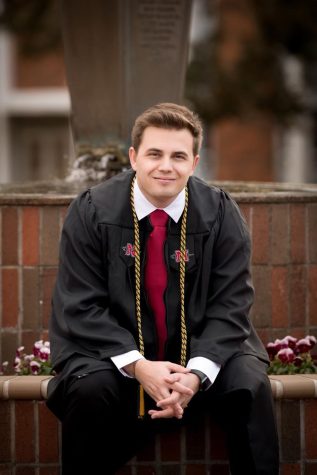
My name is Noah Domangue, and I am just a History major who loves to laugh and hang out with his friends. I also really enjoy sports and video games. I...




